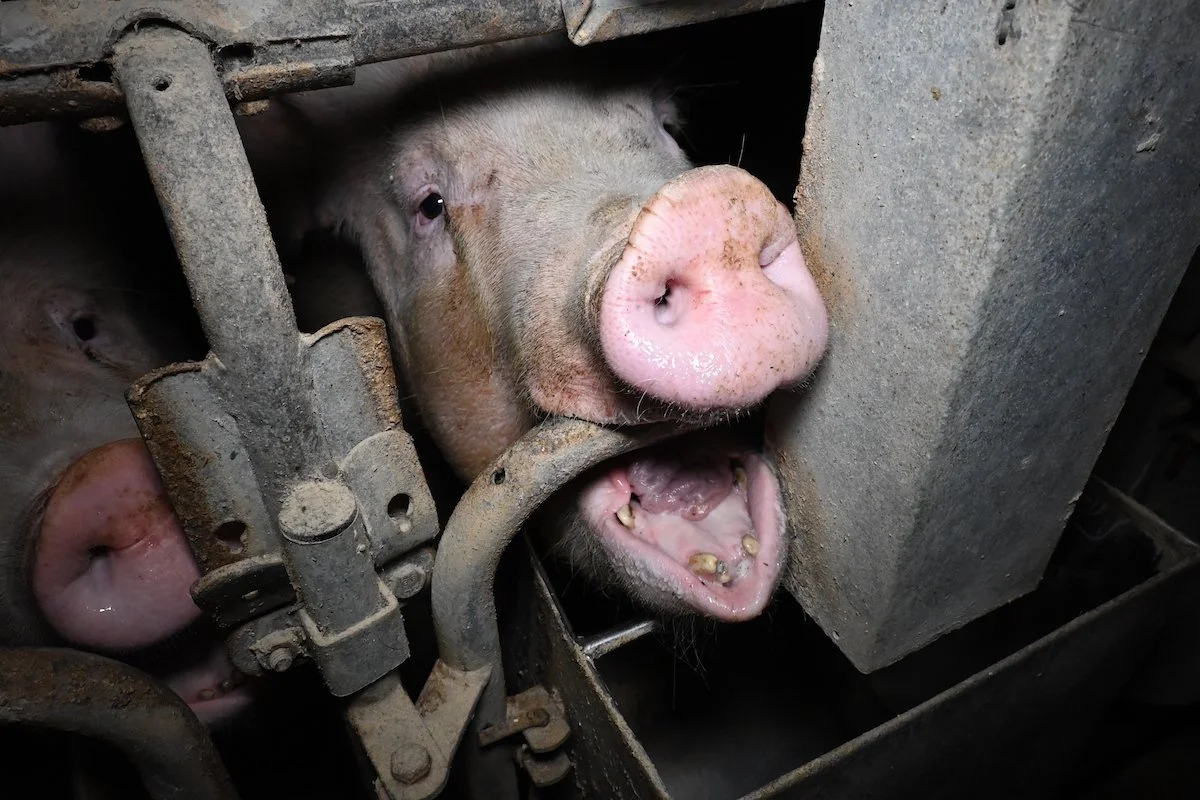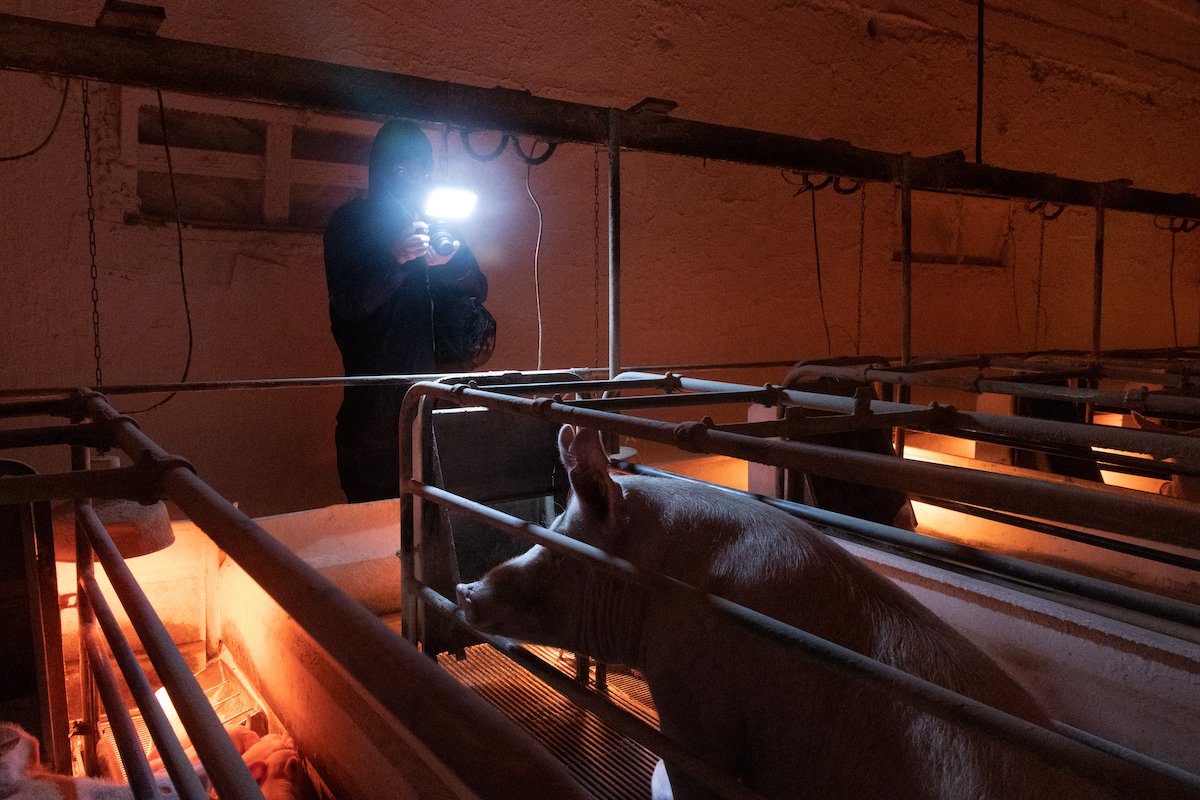Pig Farms In Greece
In collaboration with:
In May 2022, Tracks investigated pig farming in Greece for A Promise to Animals (APA), a new animal rights group based in the country.
Each year, more than 70 billion animals on land, are killed for food. 1.5 billion of them are pigs. It is estimated that over 70 percent of these animals grow up on farms. Their living conditions are horrible, and the after-effects caused by their breeding, deeply harm the environment, as well as human health.
Driven by the fact that there is no data concerning Greek pig farms and that everyone is under the impression that pigs enjoy a wonderful life till the time they are slaughtered, APA commission Tracks to conduct an investigation. Its aim is to reveal the truth, so everybody will know who lies on their plate.
The Findings
In March 2022, Tracks visited 6 farms in total and supplied APA with 2 hours of high-quality video footage and 178 photos. We witnessed some of the worst animal welfare and environmental conditions for pigs that we have seen in our many projects investigating pig farming across Europe in the last 15 years. Dead and dying pigs in housed in dirty squalid conditions. Truly horrendous.
Pig mothers and piglets
As it is accustomed to in most of the farms around the world, pig mothers are forced to live in the so-called "birth chambers" for about three months, until their young are ready to be transported to the pre-fattening and fattening facilities, where they are prepared for slaughter, during the 5th or the 6th month of their life.
In the delivery rooms, pig mothers cannot move or turn. They can only stand and lie down, stuck between railings to feed their young. In the farms visited by our team, dead or dying piglets lay next to their mothers, who s cannot comfort them during the last moments of their life. In the cases of babies who survived, it was observed that their tails and teeth had been cut off, a process that takes place hours after birth, without anesthesia. This is due to the fact that "during breeding, cannibalism or aggression might be a side effect”. According to the European directive, the removal of a pig’s teeth and tail is prohibited. It should apply only if all other methods of reducing animal stress (such as improving their living conditions and reducing the number of pigs in the same cell) have been tried and failed. An even more painful practice is the castration of male pigs without anesthesia - "which is not indicated" - between the first and third week of their life.
Older pigs
Severe injuries, tumors and open wounds were observed in older pigs (+8 weeks). Particularly one of the animals recorded, had its legs paralyzed. In addition, behaviors that are the result of chronic animal stress are recorded. These behaviors include repetitive movements and sounds, constant jaw movement like chewing, chewing on the cells’ railings, and pregnant pigs trying to make a nest with non-existing hay.
Facilities and Environment
In the facilities that our team managed to penetrate, there were thick layers of feces, which indicates that they are not cleaned often. No hay or any “enrichment material” - proposed as an EU directive to reduce animal stress - were observed. Finally, a pit was found in one of the farms, in which dozens of adult dead pigs and small piglets were thrown in plastic bags. Apart from the fact that animal burial is illegal (only burning is allowed), these pits were located next to a nearby stream. An indication of possible contamination of the water, posing a great danger to the inhabitants and the natural environment.
This is the footage our investigators have captured from inside the country’s factory farms – it exposes the lie we’re being told about the food we eat.
Sign World Animal Protection’s petition to the UK government and demand an end to factory farming.
Tracks Investigations has undertaken over 295 investigative film projects supporting over 40 conservation, environmental and animal protection NGOs since its inception in 2006. Learn more about how you can work with us here. To support our investigative work for animals, click here.





